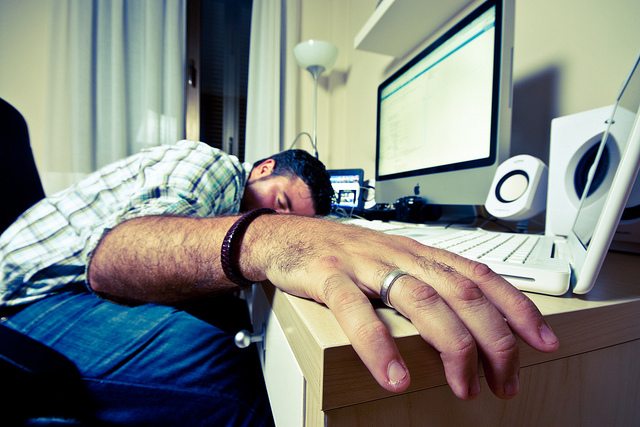
How many hours of sleep do you really need?
It's no secret that a great night's sleep means you'll be happier have more energy to tackle your day and maybe even stop hitting the snooze button. But how many hours of sleep do you and your family actually need and what happens when you don't get enough?
Here's a brief look at why getting enough sleep is so essential - and how much is enough for every age group.
Why does sleep matter?
 According to the National Sleep Foundation getting just two or three hours less sleep for a few nights in a row can leave you feeling the same as if you'd pulled an all-nighter. Over time though you might become so used to functioning this way that you forget what it's like to be truly rested and refreshed.
According to the National Sleep Foundation getting just two or three hours less sleep for a few nights in a row can leave you feeling the same as if you'd pulled an all-nighter. Over time though you might become so used to functioning this way that you forget what it's like to be truly rested and refreshed.
The majority of Americans are sleep-deprived and a chronic lack of sleep can add up over time. When you don't get enough sleep you build up a "sleep debt" according to the Reid Sleep Disorders Center.
How many hours of sleep do you need?
Adults should get about 8 hours and 15 minutes of sleep per night Hurlburt says. Still that's an average and the ideal amount for an individual adult might be anywhere from 7 to 9 hours per night.
What's more your sleep needs can vary depending on your age lifestyle and health says the National Sleep Foundation. Here's a breakdown of how many hours of sleep are needed among different age groups:
- Adults over 65: 7 to 8 hours per night.
- Adults ages 18 to 64: 7 to 9 hours per night.
- Teens ages 14 to 17: 8 to 10 hours per night.
- Children ages 6 to 13: 9 to 11 hours per night.
- Children ages 3 to 5: 10 to 13 hours per night.
- Toddlers ages 1 to 2: 11 to 14 hours per night.
- Infants ages 4 to 11 months: 12 to 15 hours per night.
- Infants under 4 months: 14 to 17 hours per night.
What steps can you take for better sleep?
Knowing how much sleep you need doesn't guarantee you'll start getting that amount. If you're still finding yourself short on sleep here are some simple ways to increase your chances of meeting your nightly quota:
- Pick a bedtime and stick to it. Without one it's all too easy to stay up for hours watching TV or scrolling through Pinterest. Once you know how many hours you're supposed to be sleeping figure out your bedtime by counting backwards from whenever you wake up in the morning. If you tend to lose track of time consider setting your alarm clock so it rings shortly before your bedtime.
- Establish a relaxing bedtime routine. Quiet calming activities like taking a bath meditating or reading help you wind down after a busy day. Once they become a regular part of your evening you'll start to associate them with bedtime.
- Leave your devices at the door. Keep phones tablets and laptops in another room like the kitchen so you aren't tempted to use them once you're in bed. Research from Harvard Health Publications suggests that the blue light from our electronic devices can suppress the sleep hormone melatonin making falling asleep more difficult.
- Keep your bedroom cool. It's tempting to keep it toasty when you first jump into bed but a chilly temperature can actually help you sleep better. The National Sleep Foundation recommends setting your thermostat to 65 degrees - but if you find that's too cold you can turn it up a notch or two.
Now that you know how much sleep you really need what are you waiting for? Aim to make sleep a priority tonight - and see how fantastic you feel in the morning.

